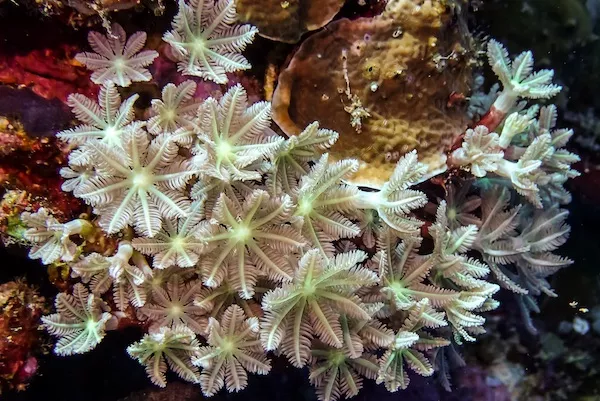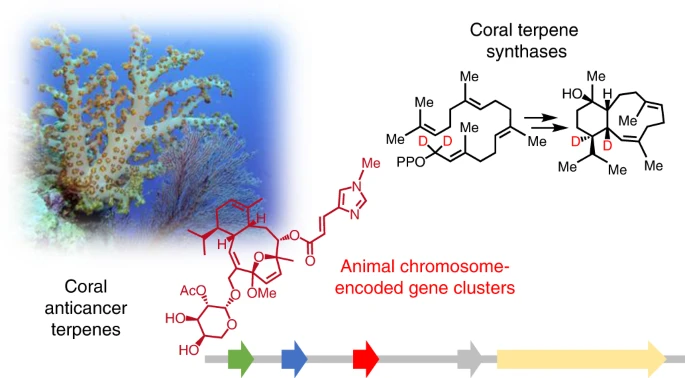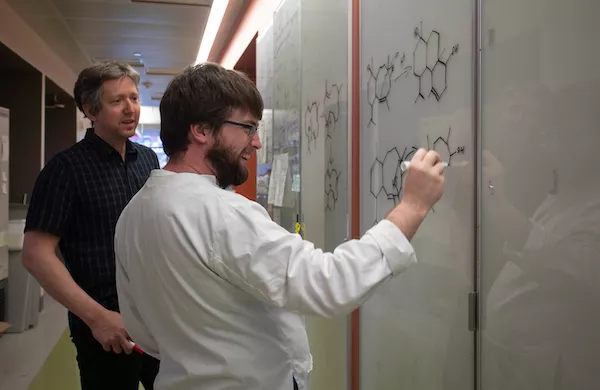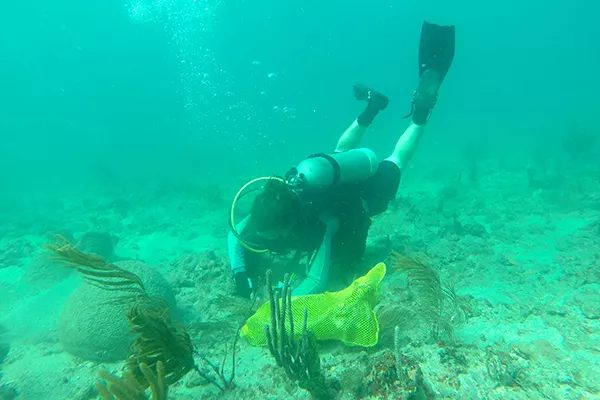From Agkistrodon halys to funnel spiders, organisms continue to prove to be a rich source of life-saving drugs, but some organisms provide their powerful compounds and molecules better than others The 25 year search for another source of a promising anticancer chemical produced by rare coral species has now begun to bear fruit, and scientists have found that other easily available corals also produce this chemical in large quantities

The central compound of the study, soft corallinol, was isolated from a rare coral species off the coast of Australia in the 1990s. Research soon began to document its "extremely effective" and "highly cytotoxic" anticancer potential. Although these early results are very encouraging, scientists cannot find this meaningful chemical, and the lack of supply has stopped their ambitions for further research and drug development.
Paul scesa, a postdoctoral scientist at the University of Utah, grew up exploring the ocean waters around Florida. His research on organic chemistry made him wonder whether the soft coral species he knew could provide some clues in the long-term search for soft coral alcohol, so he began to conduct laboratory research on living samples from the area.

It's one thing to know that corals produce soft corallinol, but understanding how they do it is what scientists really want to know. Advanced DNA technology makes it possible for scientists to study the genetic code of coral to see if it contains instructions to create this compound, but if they don't know what these instructions look like, scientists face a difficult task.
"It's like looking for an answer to a question you don't know in the dark," said Eric Schmidt, who co led the study with scesa
To fill the gap, scientists applied these DNA tools to other coral species, looking for genetic instructions to create compounds known to be similar to soft coral alcohol. This enabled them to determine that the DNA regions in the soft corals collected by scesa were similar to the genetic instructions used by other species to produce similar types of compounds, and pieced together a manual similar to the manufacture of soft corallinol.

The scientists then cultured the bacteria in the laboratory and programmed them to follow these instructions, which did see the microorganisms perform the steps of creating soft coral alcohol precursors. According to scientists, this proves that soft corals, the source of genetic instructions, are the producers of this promising anti-cancer compound. The use of biological DNA codes to recreate it in the laboratory now raises the possibility of producing the compound in the quantities required for further research and drug development.
"This is the first time we have been able to do this for any drug clue on earth," Schmidt said

Soft coral alcohol is a chemical used by coral to resist possible predators, so it can be eaten instead of being injected into hunting objects like snake poisons. Scientists say this means that compounds based on the chemical should also be easy to digest, even in the form of pills that can be taken orally with a glass of water.
"These compounds are harder to find, but they are easier to make in the laboratory and easier to take as drugs," Schmidt said
Scientists are now studying the best way to expand the production scale of the compound, hoping to eventually provide a highly effective and easy to take cancer treatment.
"My hope is to give these things to the doctor one day," scesa said. "I think it's a process from the bottom of the sea to the workbench to the bedside."
The study was published in Nature Chemical Biology 》In the magazine.